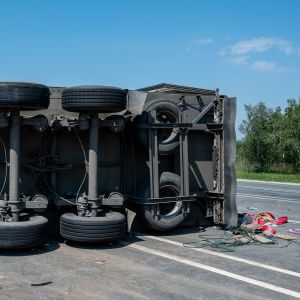Telling Your Connecticut Personal Injury Story: What Insurers and Juries Need to Hear
If you’re sitting at a conference table while a defense attorney asks you questions and a court reporter records every question and answer, will you be a strong, sympathetic witness? Those are the words that insurance company lawyers report to their corporate bosses, a/k/a insurance adjusters, when a Connecticut personal injury plaintiff does well in a deposition.
When Connecticut personal injury plaintiffs don’t do well in a deposition, when there are inconsistencies and inexplicable errors, the defense attorney report to the insurer uses words like “not credible”, and “presents poorly”.
Then, there’s court.
What if you’re in trial, sitting in the witness stand with a judge seated a few feet away from you, with a panel of jurors watching and listening to you, will you be able to tell your story?
Connecticut jurors are instructed to use their common sense and experience when they assess the credibility of witnesses. When I question jurors in order to evaluate if they’re the right fit for a case, I ask them if they think that they’re a good judge of character and whether they can tell if someone’s being honest.
What will your scorecard be after a deposition or trial?
The fact is that Connecticut personal injury plaintiffs who single-mindedly seek recovery as they go through their treatment, and consult their physicians on schedule and as they’re advised, make sense to jurors.
Those are the plaintiffs who don’t miss appointments, whose records don’t show gaps in treatment. And those are the plaintiffs who do well in depositions and in trial.
Because when you’re seriously injured, you tend to pay close attention to your treatment, what works and what doesn’t work, and how your accident is affecting you every day.
Here’s another fact: it doesn’t matter how intelligent and talented your attorney may be. If you can’t tell your story, if you can’t recount what happened to you and explain how your serious Connecticut accident has damaged you, then your case will be in trouble.
Yes, your lawyer should be able to present a closing argument that tells your story with intensity and compassion, but if your lawyer’s story doesn’t match your own story, the difference will be obvious to jurors.
Here are some bottom line tips:
o If you’re going to pursue a serious Connecticut personal injury case, then pursue your healthcare treatment seriously. Understand that your lawsuit’s financial recovery is secondary to the recovery of your health.
o Keep a diary to record your treatment experience and how your injuries and damagers are impacting your life at home and your life at work.
o And be prepared to tell your story. It’s the same story that you’d tell your friends and family sitting in your kitchen or family room. Because jurors are no different than the people who know you and observe you every day.
The Maddox Law Firm, LLC represents serious personal injury plaintiffs throughout Connecticut and we tutor our clients about how to advocate for themselves so that we can advocate for them in the most fierce, informed and intelligent way possible. If you’ve been seriously injured as the result of an individual’s or company’s negligent or reckless conduct, call the Maddox Law Firm so that we can tell your story together.




